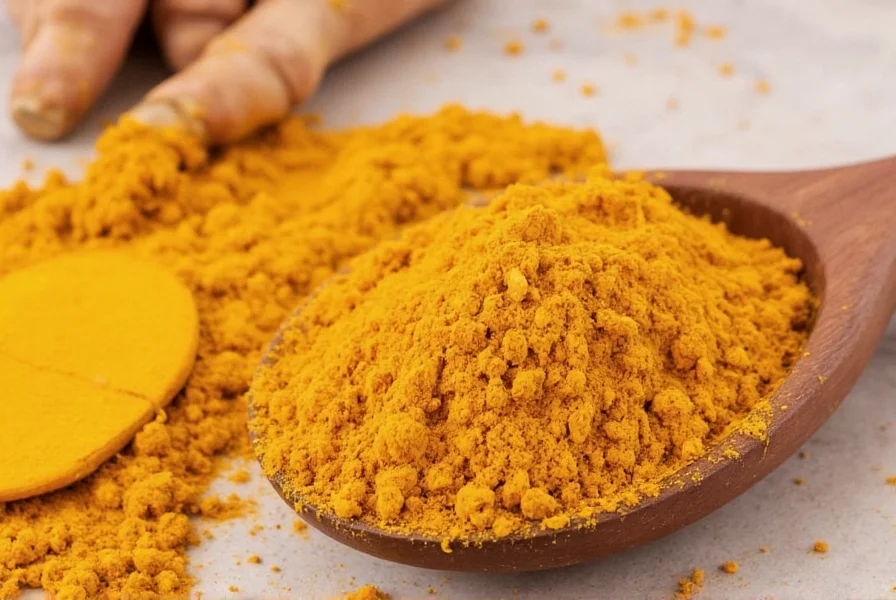Curcumin, the active compound in turmeric, has gained significant attention for its potential health benefits. Understanding the appropriate daily dosage is crucial for maximizing benefits while avoiding potential side effects. This guide provides evidence-based recommendations for turmeric consumption based on current scientific research and expert guidelines.
Understanding Turmeric Forms and Potency
Turmeric comes in various forms, each with different curcumin concentrations. Fresh turmeric root contains about 2-5% curcumin by weight, while dried turmeric powder contains approximately 3-6%. Standardized curcumin supplements typically provide 95% curcuminoids, making them significantly more potent than culinary forms.
When determining how much turmeric can you take a day, it's essential to distinguish between dietary use and therapeutic supplementation. The safe daily amount of turmeric powder differs substantially from concentrated curcumin supplements.
Evidence-Based Daily Dosage Recommendations
Multiple health authorities have established guidelines for safe turmeric consumption:
| Form | Recommended Daily Amount | Maximum Safe Limit |
|---|---|---|
| Turmeric powder (culinary) | 1.4-3 grams | 8 grams |
| Standardized curcumin supplements | 500-2,000 mg | 8,000 mg (short-term) |
| Curcumin with piperine (BioPerine®) | 400-1,500 mg | 3,000 mg |
The World Health Organization suggests an acceptable daily intake of 0-3 mg of curcumin per kilogram of body weight. For a 150-pound (68 kg) person, this translates to approximately 200 mg of curcumin daily. However, most clinical studies investigating therapeutic benefits use higher doses ranging from 500-2,000 mg of curcumin per day.
Factors Influencing Your Optimal Turmeric Dosage
Your ideal daily turmeric supplement dosage depends on several factors:
- Health goals: General wellness requires lower doses than targeting specific conditions like inflammation
- Formulation: Curcumin with piperine (black pepper extract) increases absorption by up to 2,000%
- Individual metabolism: Some people process curcumin more efficiently than others
- Existing health conditions: Certain medical conditions may require dosage adjustments
For turmeric dosage for inflammation, research suggests 1,000-1,500 mg of curcumin daily provides optimal anti-inflammatory effects. A 2020 review in Nutrients found that doses of 1,000 mg per day significantly reduced inflammatory markers in clinical trials.
Safety Considerations and Potential Side Effects
While turmeric is generally safe at recommended doses, exceeding the maximum turmeric intake daily can cause adverse effects:
- Gastrointestinal issues (nausea, diarrhea) at doses above 1,500 mg taken at once
- Increased risk of bleeding when combined with blood-thinning medications
- Potential gallbladder contractions in susceptible individuals
- Iron absorption interference at very high doses
The European Medicines Agency notes that doses exceeding 3 grams of curcumin daily may cause digestive discomfort in some individuals. Long-term safety data for high-dose supplementation remains limited, making it prudent to follow the safe amount of turmeric per day guidelines established by health authorities.
Optimizing Turmeric Absorption and Effectiveness
To maximize the benefits of your daily turmeric intake, consider these evidence-based strategies:
- Combine with black pepper: Piperine enhances curcumin absorption by up to 2,000%
- Take with healthy fats: Curcumin is fat-soluble, so consume with avocado, olive oil, or nuts
- Divide doses: Taking smaller amounts throughout the day maintains more consistent blood levels
- Avoid taking on an empty stomach: Reduces potential gastrointestinal side effects
Research published in Phytotherapy Research demonstrates that consuming curcumin with piperine and lipids increases bioavailability by approximately 29-fold compared to curcumin alone. This means you may achieve therapeutic effects with lower curcumin daily recommended amount when using enhanced formulations.
Special Considerations for Specific Populations
Certain groups should exercise additional caution with turmeric consumption:
- Pregnant women: Limit to culinary amounts (up to 1 gram of powder daily); avoid supplements
- Individuals with gallstones: High doses may trigger gallbladder contractions
- People taking blood thinners: Consult physician before exceeding 500 mg daily
- Those scheduled for surgery: Discontinue high-dose supplements at least 2 weeks prior
The National Institutes of Health advises that people with iron deficiency should monitor their iron levels when consuming high-dose turmeric regularly, as curcumin may interfere with iron absorption at doses exceeding 1,500 mg daily.
When to Consult a Healthcare Professional
Before establishing your how much turmeric can you take a day routine, consult a healthcare provider if you:
- Take prescription medications, especially blood thinners
- Have a history of gallbladder issues
- Are pregnant or breastfeeding
- Have a bleeding disorder
- Are scheduled for surgery within the next month
Healthcare providers can help determine the appropriate safe amount of turmeric per day based on your individual health profile and medication regimen. They may recommend lower doses or specific formulations to maximize benefits while minimizing potential interactions.











 浙公网安备
33010002000092号
浙公网安备
33010002000092号 浙B2-20120091-4
浙B2-20120091-4